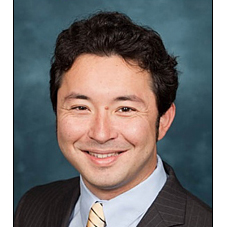教授
ケネス盛マッケルウェイン
Professor
MCELWAIN, Kenneth Mori

- アジア情報社会コース
研究テーマ
- 統治機構をデザインする
- 区分:
- 学内兼担・課程担当教員
- ITASIA Program
Research Theme
- Comparative Institutional Design
- Position:
- Affiliated Faculty
- 略歴
プリンストン大学卒。スタンフォード大学大学院政治学博士。ハーバード大学日米関係プログラム研究員、ミシガン大学政治学部助教授を経て、2015年から東京大学社会科学研究所准教授。
- 主要業績
(2008). “Manipulating Electoral Rules to Manufacture Single Party Dominance.” American Journal of Political Science 52(1).
(2012). “The Nationalization of Japanese Elections.” Journal of East Asian Studies 12(3).
(2015). “株価か格差かー内閣支持率の客観的・主観的経済要因.” レヴァイアサン 57
(2015). “What’s Unique about Japan’s Constitution? A Comparative and Historical Analysis.” Journal of Japanese Studies 41(2). (with Christian Winkler)
- Biography
AB in Public Policy and International Relations from Princeton University. PhD in Political Science from Stanford University. Postdoctoral Fellow at Harvard University Program on US-Japan Relations. Assistant Professor of Political Science at the University of Michigan. Associate Professor at the Institute of Social Science, University of Tokyo since 2015.


How Political Rules Structure Behavior
Political institutions are the “rules” that structure the behavior of political elites and the mass public. For example, electoral rules influence the strategies that candidates pursue to win votes. My research examines why countries choose different institutions in the first place, and how changes in those institutions alter political behavior. Why are some countries presidential, while others are parliamentary? What are the effects of changing electoral rules on voter behavior and party strategy? While my main focus is on contemporary Japanese politics, I apply statistical techniques to generalize my findings across countries and over time.
Is the Japanese Constitution Unique?
One of my recent projects is on comparative constitutional design. Most long-surviving constitutions are amended periodically; put differently, constitutions that are not amended tend to have short lifespans. In this sense, the Constitution of Japan is an outlier—it is currently the oldest, un-amended constitution in the world. To uncover the determinants of constitutional adaptation and survival, I use new data on the textual content of constitutions. One finding is that constitutions that enumerate more human rights tend to survive longer, while those that specify more institutions tend to be amended frequently. The Japanese Constitution includes many rights but few institutions, suggesting that its textual content can help explain its “life” as an old, un-amended constitution.